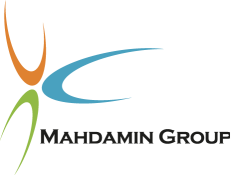use of nanotechnology in agriculture and poultry farming
The use of nanotechnology in agriculture and poultry farming has attracted much attention, especially with the advent of nanominerals.
These materials have been shown to enhance growth performance, immune responses, and overall health in poultry. Chromium nanoparticles have emerged as a promising additive in poultry diets, particularly for Japanese quail.
This presentation is based on a recently published study that investigated the effects of chromium nanoparticles on growth performance, liver tissue health, and oxidative stress levels in Japanese quail.
What is nanochrome?
Chromium is an essential trace element that plays a role in various metabolic processes, including carbohydrate and lipid metabolism. It plays an important role in increasing insulin sensitivity and glucose metabolism.
Traditional forms of chromium have low bioavailability. However, nanoparticles show a higher absorption rate due to their smaller size and larger surface area.
Studies show that chromium nanoparticles can be absorbed 15 to 205 times more effectively than their microparticle counterparts.
The role of chromium in human nutrition:
Chromium is involved in insulin signaling pathways, allowing the body to control the amount of sugar it takes in, helping to balance blood glucose levels and improve energy.
Research shows that chromium tablets can help protect DNA chromosomes from damage, meaning they may be able to stop cell mutations.
Benefits of Chromium Supplementation
Improves Growth Performance:
Studies have shown that chromium supplementation can increase weight gain and feed conversion ratio (FCR) in poultry.
This is attributed to its role in improving insulin sensitivity, which allows for better nutrient utilization.
For example, research shows that adding chromium nanoparticles (Nano-Cr) to quail diets resulted in significant improvements in weight gain during the early stages of growth compared to control groups.
Increases Feed Efficiency:
Chromium has been shown to reduce feed intake
while improving feed conversion ratio (FCR).
This means that birds need less feed to achieve the same weight gain, which translates into cost savings for producers.
Reduction of fatty liver syndrome:
Chromium supplementation has been linked to a lower incidence of fatty liver disease in poultry.
This condition can lead to increased productivity and reduced mortality rates.
By improving lipid metabolism, chromium helps maintain healthy liver function, which is crucial for overall health and productivity.
Immune system support:
Chromium plays a role in enhancing the immune response in poultry.
It has been shown to increase levels of certain immunoglobulins and cytokines, which are vital for fighting infections.
A strong immune system is essential for maintaining flock health and reducing reliance on antibiotics.
Antioxidant properties:
Recent studies suggest that chromium may have antioxidant effects and help reduce oxidative stress in poultry.
Oxidative stress can lead to cellular damage and negatively impact growth and health.
Chromium helps improve overall health outcomes by increasing total antioxidant status (TAS) and decreasing total oxidant status (TOS).
Study conducted:
This study aimed to evaluate the effect of different levels of chromium nanoparticles on the growth performance of Japanese quail. A total of 160 one-day-old quails were divided into four groups:
Control group: basal diet without additives
Experimental group 1: basal diet + 0.4 mg/kg nanochromium
Experimental group 2: basal diet + 0.8 mg/kg nanochromium
Experimental group 3: basal diet + 1.2 mg/kg nanochromium
The experiment was conducted over a 35-day period with assessments of weight gain, feed conversion ratio (FCR), and various blood and liver parameters.
Experimental environment:
The quails were housed in controlled environments with optimal temperature settings for their age.
The basal diet consisted of commercial broiler feed, consisting mainly of corn and soybean meal, formulated according to the nutritional guidelines.
Data Collection:
Key parameters collected during the study included:
Weight gain: measured weekly to assess growth.
Feed intake: calculated by subtracting the remaining feed from the total feed provided.
Feed conversion ratio (FCR): determined by dividing the total feed consumed by the weight gain.
Blood samples were collected for biochemical analysis, while liver tissues were examined histopathologically to assess any changes due to treatment.
Results:
Growth performance
Addition of chromium nanoparticles significantly affected the growth performance of quails:
Weight gain: Nanochromium supplemented groups showed greater weight gain compared to the control group in the first week.
Feed intake: Total feed intake was lower in the nanochrome groups, indicating improved feed efficiency.
Feed conversion ratio: FCR was significantly improved in the nanochrome groups compared to the control group.
Liver health indices:
Biochemical analysis showed that:
Liver fat levels: Groups receiving higher doses of nanochrome had reduced levels of fatty liver compared to the control group.
Oxidative stress markers: Total antioxidant status (TAS) was higher, while total oxidant status (TOS) was lower in the nanochrome supplemented groups, indicating improved oxidative stress management.
total oxidant status (TOS)
Therefore, TOS is commonly used to estimate the overall oxidative status of the body
The lower this index is, the better for us.
The total antioxidant status (TAS)
Similarly, the total antioxidant status (TAS) is used to measure the overall antioxidant status of the body.
A decrease in the total antioxidant status (TAS) indicates oxidative stress and increased susceptibility to oxidative damage.
Therefore, the higher the value of this factor, the better.
Oxdiative stress index
A stress index calculated by the ratio of TOS to TAS
Therefore, the lower the value of this index, the better.
Discussion:
The findings indicate that chromium nanoparticles can effectively enhance the growth performance of Japanese quails while improving liver health and reducing oxidative stress. This indicates potential economic benefits for poultry producers through reduced feed costs and improved meat quality.
Mononuclear cell infiltration:
Mononuclear cell infiltration refers to the process
by which mononuclear cells, primarily lymphocytes and monocytes, migrate into tissues during inflammatory responses.









